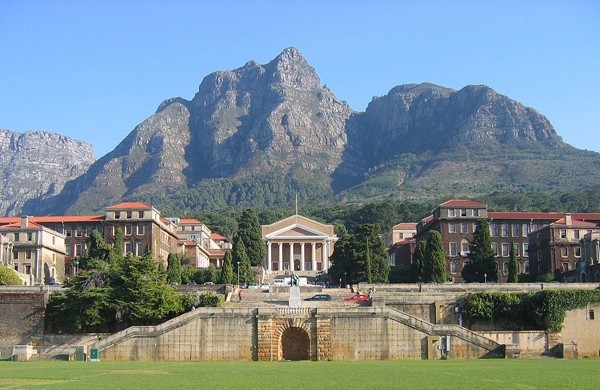
UCT students have called for lecturer Ken Hughes to be removed.
29 April 2016
A letter to the editor titled Appeasing the UCT Taliban appeared in the Daily Maverick on Friday. Its author, Kenneth Hughes, faced backlash this week from a group of University of Cape Town (UCT) students, who have called for him to be removed as a lecturer at the university.
The piece discussed how mass enrolment of black students at the university coincided with management’s “dumbing down” of academics, Hughes said. Students have made the assumption that he is saying that UCT was dumbed down because it was opened to black students, he said. Instead, says Hughes, he is saying he is “sorry” that black students are not being given the same level of education he had when he was a student.
The article also targets UCT management for the way it has responded to student demonstrations. Instead of trying to appease demonstrations “fired up by irrational ideologies,” management should dissociate itself from the irrationalism, Hughes said.
The piece was meant to be a criticism of management, said Hughes. “The students don’t seem to reach the end of the article.”
In a statement to GroundUp, the group UCT Decolonise Economics (DEUCT) called the article “inherently racist and reductionist.”
“He … had little consideration for support structures that are necessary for students to engage with their academics … This, as well as his ableist slurs, do not recognise the gravity of black pain, and the effects it has on academics. He completely failed to recognise his positionality as a white, cisman, and thought it appropriate to speak against student movements,” DEUCT wrote.
When Hughes arrived Monday for his History of Economic Thought lecture, students had shown up to disrupt the lecture to show their opposition to Hughes and his article. DEUCT had organised the disruption, in addition to sending the School of Economics an email about their grievances. They spoke to students both registered and not registered for the course.
DEUCT wrote that there was a call to suspend lectures for the week and to have Hughes removed as a lecturer of the course. (Hughes teaches the lectures for free and is not employed by the university.)
“Everyone in the lecture agreed that they did not want him teaching them,” DEUCT wrote in a statement to GroundUp.
DEUCT led a discussion on Afrocentric economic thought during the lecture period. Hughes decided to not stay.
On Tuesday, the School of Economics thought it best that a lecture not be held in order for there to be a “cooling-off period,” Hughes said. After Wednesday’s public holiday, Hughes and the department decided that his lectures should be recorded and made available to students online for the rest of the semester instead of live lectures that might face disruption.
DEUCT said they have been urged to submit a disciplinary case against Hughes. Yet the link they were provided did not work. When they found the working webpage, the procedure’s details were not clear.
The organisation said they have received support both on social media from other students, as well as support from lecturers within the School of Economics. UCT: #PatriarchyMustFall has also spoken out against the article on Facebook.
Hughes believes the lecture disruptions are a breach of academic freedom. There are two rights that have been violated: the right to speak and the right to hear, he said. The students who want to attend his lectures have not been able to do so because of the disruptions, he said.
UCT’s central management were prepared to provide bodyguards for Hughes in order to secure his academic freedom, he said. However, the School of Economics, concerned that the situation would affect its relationship with its students, suggested that Hughes record his lectures as a compromise. He is happy with the compromise, he said, because his rights to free speech and academic freedom are not being infringed upon.
DEUCT said they would continue to disrupt any lectures until Hughes is removed as a lecturer. “DEUCT detests the violence propagated by Hughes for the purpose of academic freedom,” they wrote.
They also said an apology would not be enough and there needs to be “a clear indication of reform and self-reflexivity.” Hughes is not the only problem as there have been other lecturers who have said racist comments, they wrote. There should be a more inclusive staff teaching more inclusive content. The decolonisation they hope for extends beyond the curriculum, they wrote.
Student perception of the School of Economics has been negatively affected, wrote Lawrence Edwards, the school’s head, in an email to GroundUp.
“The advice we have received from the Executive is that the principle of academic freedom must be maintained. UCT as the employer is required to provide an enabling environment for staff to exercise academic freedom.” he wrote.